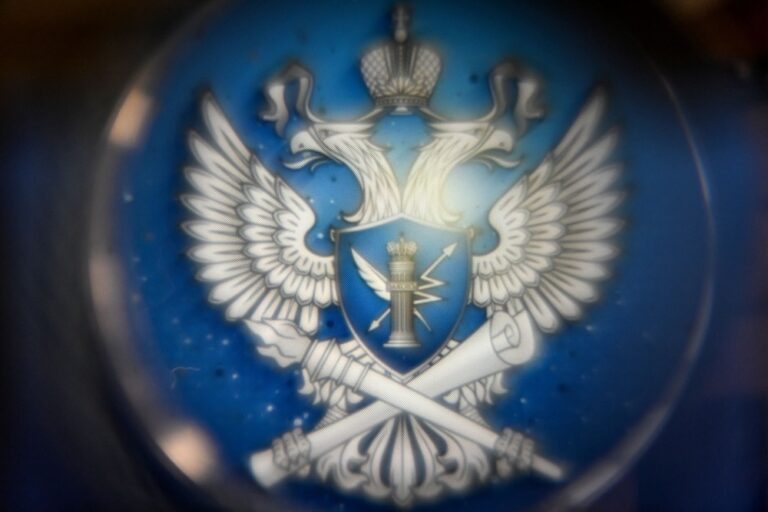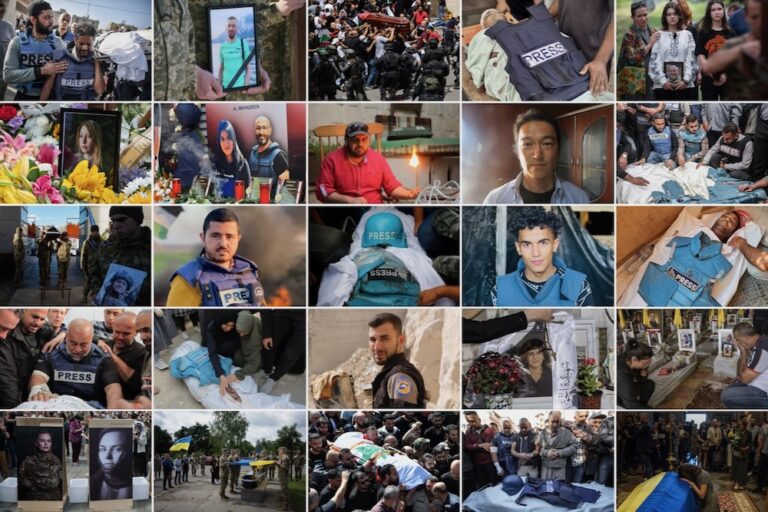(IFJ/IFEX) – The following is a 20 December 2002 IFJ media release: IFJ Calls for New Safety Culture after 67 Journalists and Media Staff Killed in 2002 The International Federation of Journalists said that 2002 has been a “year of targeting” in which investigative reporters on three continents died in separate assassinations for pursuing stories […]
(IFJ/IFEX) – The following is a 20 December 2002 IFJ media release:
IFJ Calls for New Safety Culture after 67 Journalists and Media Staff Killed in 2002
The International Federation of Journalists said that 2002 has been a “year of targeting” in which investigative reporters on three continents died in separate assassinations for pursuing stories that expose terrorism, corruption or criminal activity.
“These journalists paid the ultimate price for their stories,” said Aidan White, IFJ General Secretary announcing a total of 67 deaths in its 2002 report of journalists and media staff killed while on duty, in Brussels today. “It is time for the international community and the media industry to join hands in a new campaign to hunt down those who target journalists for asking the tough questions that help keep democracy intact.”
The IFJ says that the killing of Wall Street Journal reporter Daniel Pearl in January set the tone for a year of targeting of journalists. Pearl, who was investigating the world of al-Qaeda and international terrorism, was kidnapped and mercilessly used by his captors in Pakistan who videotaped his killing.
“This unprecedented and chilling display of brutality reminds journalists that global media are in the frontline of the struggle for democracy and human rights,” said Aidan White. Pearl was one of several cases highlighted by the IFJ – others were in India, Colombia, Russia and Brazil – where investigative journalists have been targeted.
“We have to do more to reduce risks,” says the IFJ, which, with the International Press Institute, has established a coalition of more than 80 media, journalists’ unions, press freedom groups and international organisations to launch the International News Safety Institute early next year.
The new organisation will co-ordinate safety actions in defence of journalists and media staff around the world. “The world is an increasingly dangerous place for working journalists,” said White, “We need a new culture of safety awareness that will reduce the risks to reporters without diminishing the media’s right to cover the stories that need to be reported.”
Once again, the IFJ has focused on Latin America where journalism is particularly threatened. In Colombia the toll has been high – ten deaths in the year. The IFJ responded by opening up a new office in Bogotá in October to monitor attacks and to help provide assistance to local journalists.
“Some of these killings were unavoidable. Journalists sometimes are in the wrong place at the wrong time and we recognise that, with ruthless criminals and indifferent politicians, often there is little that can be done to stop determined killers,” said White, “but governments must be continually challenged to investigate and follow up every attack on media staff.”
The IFJ has welcomed positive actions, such as in Mozambique, where the authorities have brought to trial people accused of the political assassination of Carlos Cardoso, a leading editor murdered in 2000. But the IFJ remains concerned that some other high-profile assassinations of journalists – Gyorgy Gongadze in the Ukraine and Martin O’Hagan in Northern Ireland – remain unsolved. “Governments have a responsibility to bring killers to justice,” said White, “and in these cases we know from sources on the ground that more can and should be done.” He warned that the targeting of journalists would continue “so long as governments fail to crack down hard on those who practice censorship by violence.”
The IFJ says that a new global media safety organisation bringing together industry, press freedom groups and media staff will provide a new focus for pressure on governments. It will also strengthen media.
“We may not be able to stop all the killings, but we can put safety of journalism where it belongs – at the top of the media and governmental agenda,” said White.
The IFJ represents more than 500,000 journalists in more than 100 countries.


